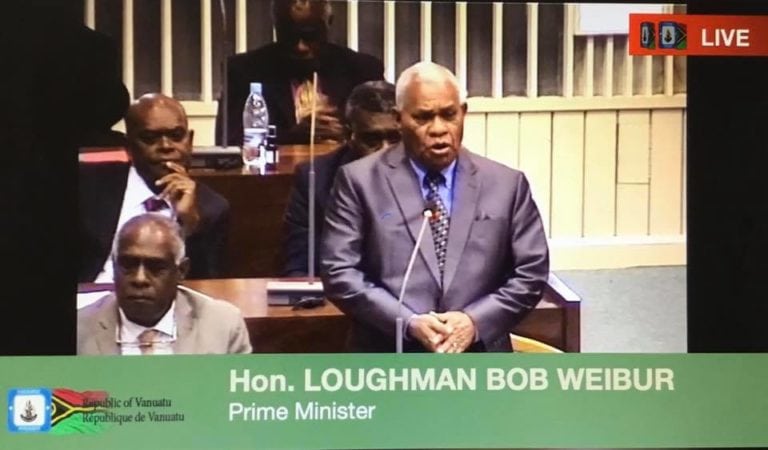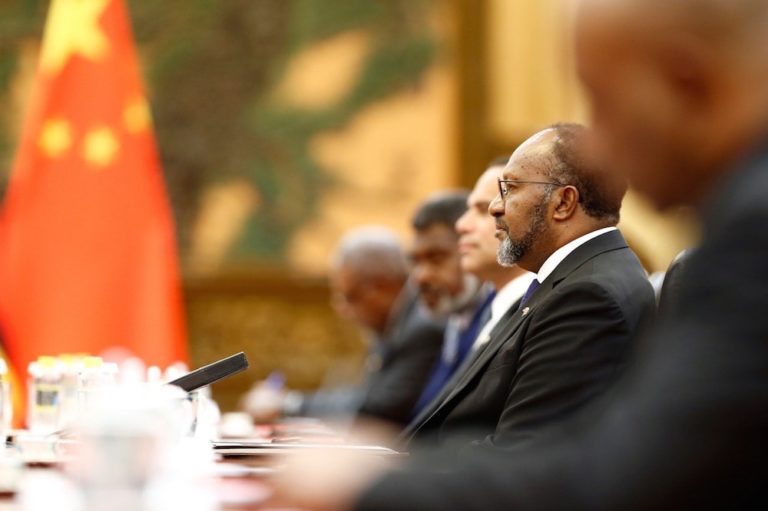(PINA/IFEX) – On 29 September 1999, the chairman of the Vanuatu Broadcasting and Television Corporation announced that two suspended editors had been reinstated “with full entitlements but a with a strong warning.” PINA members in Vanuatu reported that Kaloris said editor Moses Stevens and desk editor for radio and TV Hilaire Bule were reinstated after […]
(PINA/IFEX) – On 29 September 1999, the chairman of the Vanuatu Broadcasting
and Television Corporation announced that two suspended editors had been
reinstated “with full entitlements but a with a strong warning.” PINA
members in Vanuatu reported that Kaloris said editor Moses Stevens and desk
editor for radio and TV Hilaire Bule were reinstated after their cases were
heard by the board. PINA and other media organisations had criticised their
suspension. PINA appealed for their immediate and unconditional
reinstatement.
**Updates IFEX alert of 24 September 1999**
The appeal came after Stevens and Bule were suspended on 18 September for
telling a Pres Klab blong Vanuatu meeting that they had been directed not to
broadcast news that a government backbencher had defected to the opposition.
Kaloris claimed Stevens and Bule were the “victims of a media ploy
engineered by some including the two independent bi-weeklies and
misrepresentations by the journalists grouping, Pres Klab blong Vanuatu.” He
also claimed “Vanuatu Trading Post” publisher Marc Neil-Jones is using the
controversy to “strengthen his push for the Pacific’s most prized media
award,” the PINA Pacific Freedom of Information award.
Meanwhile, turmoil within the Vanuatu news media over the incident is
continuing, PINA members in Vanuatu reported. Journalists at the “Vanuatu
Trading Post” said they were withdrawing from Pres Klab blong Vanuatu. They
said they did so after a Pres Klab blong Vanuatu executive member from the
“Vanuatu Trading Post” was excluded from a meeting which its executives had
with Vanuatu Broadcasting and Television Corporation general manager Jonas
Cullwick. “Vanuatu Trading Post” editor Len Garae also said in a statement
that “the attack on Mr Neil-Jones and us journalists by the board was
deliberately designed to deviate public opinion from the real issue, which
seems to be the way the corporation is run. The press club should work and
speak with one voice to defend the rights of its journalists.”
Background Information
On 23 September, PINA appealed for the fundamental human rights to freedom
of expression and information to be respected in a political power struggle
now taking place in Vanuatu. PINA said that it had received a series of
complaints from Vanuatu journalists alleging growing government interference
in the daily running of VBTC and the news its radio and TV stations carry.
PINA said that VBTC is largely a publicly funded national broadcaster and
the duty of the organisation and its staff is to fully and impartially
inform all the people of Vanuatu. PINA added that VBTC is not there to serve
the personal interests of whichever politicians happen to be in power. PINA
further stated that media freedom in Vanuatu had until recently advanced a
long way from the times when there was outrageous political interference in
the running of VBTC. All those responsible for this improvement deserve
congratulations, it said. PINA appealed to everyone in Vanuatu to “ensure
that there was now no return to the bad days of old.”
Vanuatu Broadcasting and Television Corporation (VBTC) operates Vanuatu’s
only radio and TV stations. They broadcast in the country’s three main
languages, Bislama, English, and French. It also publishes one of the
country’s three main newspapers, the trilingual “Vanuatu Weekly”.


